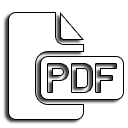R RELATIONSHIP BETWEEN MOTIVATION AND TREATMENT ADHERENCE IN PATIENTS WITH TYPE II DIABETES MELLITUS
DOI:
https://doi.org/10.33859/jni.v4i1.294Keywords:
Diabetes Mellitus Type II, Medication Compliance, MotivationAbstract
Background: In the era of globalization there has been a shift from communicable diseases to non-communicable diseases, degenerative diseases are increasingly appearing, one of which is diabetes mellitus. One of the efforts to prevent and treat diabetes mellitus patients is to provide motivation in medication adherence in diabetes mellitus patients. Good motivation will affect increased compliance. Compliance in adhering to treatment plays an important role in maintaining the balance of blood sugar levels and minimizing the risk of complications.
Objective: To find out the correlation between motivation and adherence to treatment in patients with diabetes mellitus type II at the PIR Butong Health Center.
Methods: This type of quantitative research with a correlational study design with a cross sectional approach. The sample was type II diabetes mellitus patients who underwent routine treatment at the PIR Butong Health Center in January - February 2023 totaling 63 people and were taken using the accidental sampling technique. Retrieval of data using a questionnaire sheet. Data analysis used the Spearman Rho test.
Result: Most of the respondents had good motivation, namely 33 people (52.4%), almost half of the respondents had low medication adherence, namely 23 people (36.5%). There is a significant relationship between motivation and medication adherence in type II. diabetes mellitus at the PIR Butong Health Center with a p-value (0.000<0.05). The value of r = -0.615 which means a high correlation coefficient or a high relationship between motivation and medication adherence.
Conclusion: There was a correlation between motivation and adherence to treatment in patients with diabetes mellitus type II at the PIR Butong Health Center.
Downloads
References
Agustina, P. L., & Muflihatin, S. K. (2019). Hubungan Tingkat Pengetahuan Dengan Terkendalinya Kadar Gula Darah pada Pasien DM Tipe II di RSUD AWS. Borneo Student Research (BSR), 1(1), 537–543. https://journals.umkt.ac.id/index.php/bsr/article/view/947.
Almira, N., Arifin, S., & Rosida, L. (2019). Faktor-Faktor yang Berhubungan dengan Perilaku Kepatuhan Minum Obat Anti Diabetes pada Penderita Diabetes Melitus Tipe 2 di Puskesmas Teluk Dalam Banjarmasin. Homeostasis, 2(1), 9–12. http://ppjp.ulm.ac.id/journals/index.php/hms/article/view/422.
Datuela, N., Akbar, H., & Langingi, A. R. C. (2021). Hubungan Motivasi Diri dengan Kepatuhan Diet pada Penderita Diabetes Mellitus di Klinik Kotamobagu Wound Care Center. Promotif : Jurnal Kesehatan Masyarakat, 11(2), 158–163. doi: 10.56338/pjkm.v11i2.2105.
Fandinata, S. S., & Ernawati, I. (2020). Management Terapi Pada Penyakit Degeratif (N. Reny, Ed.). Gresik: Graniti.
Hermina. (2020). Hermina Hospitals | Penyebab dan Gejala Diabetes. Heminahospital.Com. Retrieved from https://www.herminahospitals.com/id/articles/penyebab-dan-gejala-diabetes.
Infodatin. (2020). Langkah - Langkah Pencegahan bagi Penyandang Diabetes Melitus. Kementrian Kesehatan Republik Indonesia, 1–6.
Jannah, R. (2019). Analisis Faktor Yang Berhubungan Dengan Stres Pada Pasien Diabetes Mellitus Di Puskesmas Surabaya [Skripsi]. Universitas Airlangga.
Manalu, R. M., Manurung, T., & Manurung, Y. (2020). Hubungan Motivasi Dengan Kepatuhan Pelaksanaan Diet Pada Penderita Diabetes Melitus. Jurnal Keperawatan Priority, 3(2), 53–61. doi: 10.34012/jukep.v3i2.970.
Mokolomban, C., Wiyono, W. I., & Mpila, D. A. (2018). Kepatuhan Minum Obat Pada Pasien Diabetes Melitus Tipe 2 Disertai Hipertensi Dengan Menggunakan Metode MMAS-8. PHARMACON Jurnal Ilmiah Farmasi, 7(4), 69–78. doi: 10.35799/PHA.7.2018.21424.
Muthmainnah, M., Tjomiadi, C. E. F., Budi, I., & Rakhmadhani, I. (2022). Dukungan Pasangan Terhadap Kepatuhan Diet Penderita Diabetes Melitus Tipe 2. 9–18.
Ningrum, D. K. (2020). Kepatuhan Minum Obat pada Penderita Diabetes Melitus Tipe II. HIGEIA (Journal of Public Health Research and Development), 4(3), 492–505. doi: 10.15294/HIGEIA.V4ISPECIAL.
Notoatmodjo, S. (2014). Ilmu Perilaku Kesehatan. Jakarta: Rineka Cipta.
Nurayati, L., & Adriani, M. (2017). Hubungan Aktifitas Fisik dengan Kadar Gula Darah Puasa Penderita Diabetes Melitus Tipe 2. Amerta Nutr, 2, 80–87. doi: 10.2473/amnt.v1i2.2017.80-87.
Nurhidayati, T., & Rahayu, A. D. (2017). Dukungan Pasangan pada Pasien Kanker Payudara yang Menjalani Kemoterapi di RSI Sultan Agung Semarang. Jurnal Keperawatan Soedirman, 12(3), 71–77. http://jks.fikes.unsoed.ac.id/index.php/jks/article/view/755
Putra. (2020, February 6). PENGERTIAN MOTIVASI. Salamadian.Com. https://salamadian.com/pengertian-motivasi/.
Qatrunnada, Arnita, Y., & Atika, S. (2022). Motivasi Dalam Pengontrolan Kadar Gula Darah Pada Penderita Diabetes Melitus Tipe 2. JIM FKep, 6(1), 304–309.https://jim.usk.ac.id/FKep/article/view/20781.
Rahmasari, I., & Wahyuni, E. S. (2019). Efektivitas Memordoca Carantia (Pare) Terhadap Penurunan Kadar Glukosa Darah. Infokes: Jurnal Ilmiah Rekam Medis Dan Informatika Kesehatan, 9(1), 57–64. doi: 10.47701/INFOKES.V9I1.720.
Riskesdas, T. 2018. (2018). Laporan Provinsi Kalimantan Tengah RISKESDAS 2018 (T. 2018 Riskesdas, Ed.; Riskesdas 2018). Kalimantan Tengah: lembaga Penerbit Badan Penelitian dan Pengembangan Kesehatan (LPB).
Rosa, E. M. (2018, January 28). Kepatuhan (Compliance). UMY. Retrieved from https://mars.umy.ac.id/kepatuhan-compliance/.
Yuniati, N. S., & Sofiani, Y. (2017). Hubungan Antara Motivasi Dengan Kepatuhan Berobat Pada Penderita Diabetes Melitus Di Puskesmas Kecamatan Pesanggrahan. Universitas Muhammadiyah Jakarta, 1–9.
Downloads
Published
How to Cite
Issue
Section
License
Copyright (c) 2023 Journal of Nursing Invention

This work is licensed under a Creative Commons Attribution 4.0 International License.


















